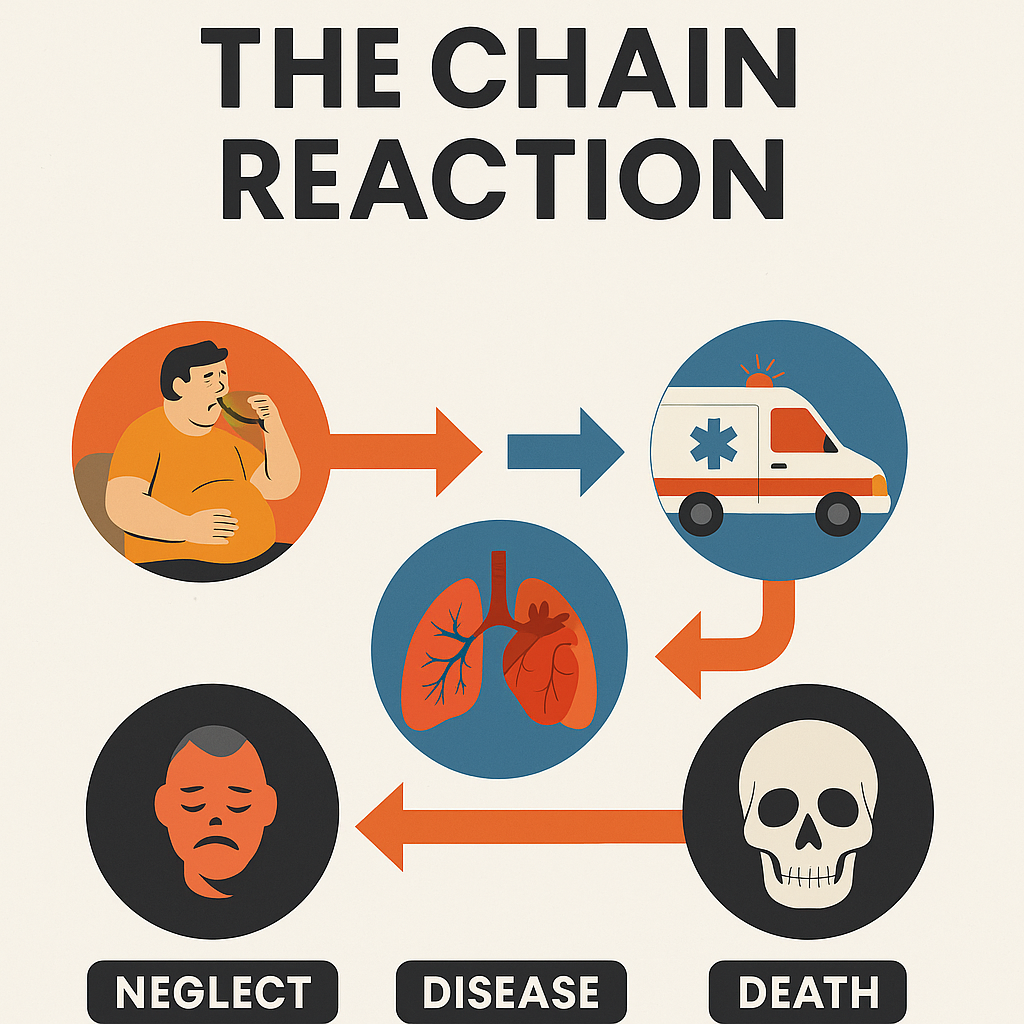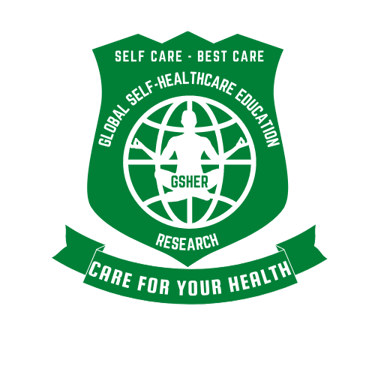The Call That Changed Everything: Why Health Begins With You
The Chain Reaction of Neglect → Disease → Emergency → Death
DR BISWAJIT MOHAPATRA
7/23/20254 min read


Bisu… come quickly… I can’t breathe… do something… I’m dying.”
Those words… are still echoing in my ears like a haunting refrain.
It was 10:30 AM. I had just removed my surgical gloves after a complex operation and was walking towards the outpatient department when my phone buzzed.
The voice on the other end, broken, trembling, and gasping, was of my closest friend. And in that single moment, my world shifted.
I did what I had done hundreds of times before in an emergency:
I barked out orders to my staff to prepare the crash trolley.
Alerted the ambulance team.
Grabbed the emergency kit and jumped into my car with the critical care nurse.
Then I ran. My mind racing faster than my feet, fueled by a desperate hope: I will reach in time.
His house was only 5 kilometers away. Ten minutes if the roads were kind. The phone kept ringing, and my friend's wife was nervously asking how long it would take to arrive.
But halfway there, my phone rang again for the last time. This time, his wife’s voice cracked like shattered glass:
“He’s unconscious now.”
I clenched the steering wheel so hard my knuckles turned white. I pushed the accelerator, praying, pleading silently with every heartbeat: Hold on… just hold on.
When I finally reached it, time seemed to freeze. He lay on the floor, his eyes half-open, staring into nothingness. I knelt beside him and did what I had been trained for: intubation, chest compressions, adrenaline shots, everything, and shifted him to the hospital. For the next 30 agonizing minutes, we fought death like warriors in a losing battle.
And then…
“Time of death: 12:12 PM.”
Why am I telling you this story?
Because this tragedy was not fate. It was a preventable loss.
My friend wasn’t an ignorant man. He had survived two major heart procedures, with five stents inserted over 16 years. He had all the warning signs, all the chances to change his path.
And yet, like millions of others, he lived in denial.
He ignored dietary advice.
Skipped exercise like it was optional.
Believed in “miracle Ayurvedic cures” forwarded on WhatsApp.
Trusted influencers are selling health shortcuts more than science.
And kept faith in medicines as if they were magic bullets, while neglecting the foundation of health: lifestyle.
That day, something inside me broke, and something else awakened.
I realized that my purpose as a doctor was no longer limited to saving lives in the operating theater. My real calling was to prevent people from ever reaching the operating table in the first place.
Let’s talk facts, the ones most people don’t want to face.
According to the World Health Organization (WHO):
74% of all global deaths (41 million people annually) are caused by non-communicable diseases (NCDs) like heart disease, diabetes, cancer, and chronic respiratory conditions.
These are not infections. They are lifestyle-driven diseases.
Premature deaths (before 70 years of age) from NCDs account for 17 million lives every year.
In India alone, NCDs account for over 60% of total deaths. Heart disease tops the list, followed by diabetes and cancer.
Here’s the shocking part:
Most of these deaths are preventable.
WHO estimates that 80% of heart disease, stroke, and type 2 diabetes, and 40% of cancers can be prevented through simple lifestyle changes:
Healthy diet
Regular physical activity
Avoiding tobacco and excess alcohol
Managing stress
Yet, people wait for the ambulance instead of making those changes today
Because modern medicine has mastered disease management, not health creation.
We can insert stents in blocked arteries, but we can’t force people to put down the fried snacks.
We can prescribe insulin, but we can’t make people walk 30 minutes a day.
We can replace joints, but not replace the years lost to inactivity.
Health cannot be outsourced. It is a daily habit, not a hospital event.
If you think disease strikes randomly, think again.
Every cell in your body is like a tiny city, performing thousands of processes every second to keep you alive. These processes thrive on balance. But the way most of us live today is an assault on that balance:
Ultra-processed food floods your body with sugars, chemicals, and bad fats.
Chronic stress keeps your cortisol levels high, damaging blood vessels and immunity.
Sleep deprivation disrupts hormonal cycles, triggering weight gain and inflammation.
A sedentary lifestyle slows metabolism, hardens arteries, and weakens muscles.
Over time, this toxic cocktail leads to
Atherosclerosis (narrowing of arteries) → heart attacks and strokes.
Insulin resistance → diabetes.
Cellular mutation → cancer.
But here’s the good news: Science now confirms what ancient wisdom hinted at: Your body is designed to heal.
Your cells regenerate.
Your arteries can regain elasticity.
Your metabolism can be reset.
This field of study is called epigenetics, and it shows that your genes are not your destiny. Your choices switch them on or off.
My Friend’s Story is a Case of Preventable Death
Let’s revisit that day, not as a tragedy, but as a lesson for the world.
He was only 58. A loving father, a brilliant professional, a man who had seen the inside of an ICU twice and still believed, “Nothing will happen to me.”
His last decade looked like this:
Skipped routine check-ups because “I feel fine.”
Relied on Google health tips instead of structured advice.
Followed influencers promoting detox teas for “heart cleansing.”
Mocked yoga and meditation as “for old people.”
Ate lavish meals because “life is short; enjoy today.”
And life did become short.
Why am I sharing this so bluntly?
Because behind every obituary like his lies the same pattern:
Denial. Delay. Dependence on quick fixes.
He didn’t die of a sudden heart attack. He died of years of neglect.
Neglect rooted in a dangerous belief:
“That health is someone else’s job, the doctor’s, the hospital’s, the pill’s.”
The Chain Reaction of Neglect → Disease → Emergency → Death
That day, driving back from his funeral, I made myself a promise:
I will not stay silent anymore.
I will speak even if people call me harsh.
I will teach even if people resist.
I will fight not disease, but ignorance.
Because the real epidemic is not heart disease, not diabetes, not cancer.
The real epidemic is the lack of health literacy.
And this article, dear reader, is part of that fight.
DR. BISWAJIT MOHAPATRA, MS.
CHAIRMAN, GSHER
SENIOR SURGEON AND HEALTH EDUCATOR
9437042490
